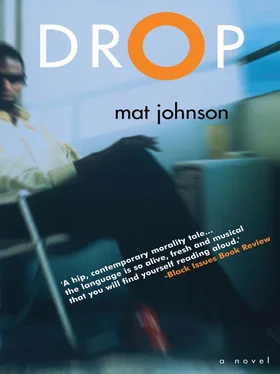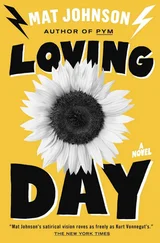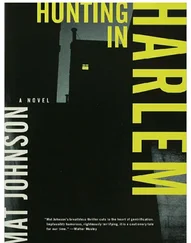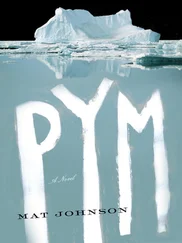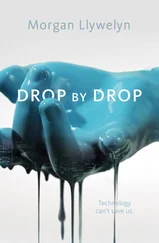Back at my flat my keys were Spanish cymbals, my feet those sticks that beat Japanese drums. TOM TOM TOM . Walking down the hall, up the stairs to the bedroom, knocking shit over like it was my job. Don’t stop, keep walking. And don’t wake Fi up, no no, because good moods were needed for me to escape and compensate for Margaret’s absence in the weeks to come. Sitting on the edge of the mattress I made it as far as no shirt, pants down to my ankles, shoes on. Then I started staring at Fionna’s ass. Goddamn, look at that baby, it looking at me. I started laughing because the white sheet was trying to contain it, but hell no. What was it going to do? One thin cotton membrane vs. Africa, yelling at the top of its lungs, ‘Whatchu got that can step to this?’ Nada damn thing. And wasn’t it lovely, she lovely? My house, my blessed house, lovely? The fat bastard, lovely? My world, lovely dovely. Yeah baby, my world. That’s right. I earned it. If it was a dead land, I was a happy fucking maggot.
The next morning, at eight, Fionna whispering my name to me, telling me to turn the alarm off. I rolled over and extinguished the sound. Through my sleep I’d heard the phone ring, but when I checked the machine I saw that Fi, in her effort to discourage David’s habit of late night message calls, had turned it off. My post-drink body felt as if small, angry men had beaten it with sand-filled whiffle bats. Standing in front of the refrigerator, I drained a liter of Fionna’s bottled water.
Dressed, showered, lotioned, I cut through the park towards David’s. For a while I walked behind a woman and her dog. It was a big thing, some kind of mastiff, its face the size and expression of a man’s. I paced myself behind it, watching the prams and the obstinance of joggers until I reached the park’s far wall and made David’s turn.
I was slow this morning, I was late. David wouldn’t care, but I did: I was already past due in routing the proposed titles for our Thompson Foods bid and I was too tired to stay the night working, so at his gate I hustled to the door. I pressed the bell once, and then again until the blood fled my finger’s surface, knowing as drunk as David was the night before, getting him up would not be a simple chore. Satisfied with the length of my buzz, I stepped back to wait for him, accidentally bumping into something that blocked my way, a large burnt log. I didn’t expect it, I almost fell back into the gate before I caught myself. That’s when I noticed the rest of the small lawn. It looked like the dumb bastard had decided to have Guy Fawkes early, and on his front walk. The area was filled with burnt crap, pieces of all sizes thrown everywhere they could land (on Margaret’s pink roses, completely covering the small patch of grass), big chunks of wood and plaster and, shit, pieces of furniture as well. One half burnt object was Margaret’s reading chair, the one her grandmother brought from St. Kitts, with the intricate carved pears. Then I realized, those big chunks of coal strewn everywhere — all over this yard and every adjoining one, littering the sidewalk and even the gutters of the street — those were Margaret’s mysteries. Dispersed without care like crab apples. She was going to kill him. And the odor: the place smelled like a mason jar of burnt matches, left to rot in the sun. Insanity, and chances were I was going to get stuck cleaning it up. All of it, until every ash was disposed of, every black hunk carted off. I’d worn my blue pinstripe pants, too, the ones I dropped seventy quid on on Neal Street the week before.
Disgusted, I looked up, ready to see the bear open his window with his smiling faux-guilty manner, ready to send those keys flying towards me once more. But instead of fat boy, instead of arrogance, carelessness or pride, what I saw through that window was the clouds above. There was no pane, there was no glass, there was no ceiling or curtains there, only light, space, and a plane drifting slow and deliberate far above. Through David’s window on the second floor I could see the morning sky, a pretty blue thing this day, the color of Captain America’s leotard. Even the sun, a rare guest in this place, shone down through the space after I had been staring for a while. Above that window, the third floor looked like the charred ribs of a whale. Urgent Agency, the place that had been my office, the place I produced, where my computer rested, where there were folders filled with the best work I’d ever done, had been replaced by a bunch of blackened beams, a few patches of ceiling that had forgotten to fall down.
I knew that he was gone. My brother. I knew that he was the ash around me. That the only place his voice now existed was in my ear and in the heads of others who had heard him. I also knew that whatever I could have done last night to stop this from happening, there was nothing I could do now. There was no machine or service I could think of that could put pieces like this back together for you. But for some reason Chris Jones just kept standing there, looking up to David’s window, the back of his skull fixed to the top of his spine, unable to close his mouth or look down again. David’s false savior, the one who’d failed to rescue him from even this fate, just stood there. Waiting patiently for something to move above him besides the smoke rising lazily from the feast now over.
David’s funeral was a quiet thing, particularly for such a loud man. It was just us standing there on a slope of cemetery land. I thought it would be more — we got the call the day before and I was expecting a crowd — but it was just Margaret and Raz, the former in black, the latter in a purple suit, shirt, and tie. No viewing, no family flown up from the Caribbean, no friends standing as monuments to the lives he had acquired. We were all that was left of him. All that hadn’t been lost or pushed away before now.
It was still sunny out, kind of hot even, and I stood, uncomfortably, listening to the preacher’s prefab sermon and the silences when he gasped for air. Margaret stood across from me, the coffin separating us, and the only way I could manage that was by staring at her ankles, at the bottom of her dress. Unable to look away but even more incapable of looking up at her. Anger, despair, or a blank stare — it didn’t matter what I saw there because I couldn’t handle any of them, or the emotions they were symptoms of. Fourteen years Margaret took care of the man and he was just fine. One night under Chris’s watch and this is our next meeting place.
I knew Fionna was somewhere behind me, so when the lift started taking the coffin down, away from me, I reached back for her, one blind hand hoping to grasp another, but I touched nothing. Nobody was touching at all. Us just standing there, a couple of people alone at the same place, the same time. More like people waiting for an elevator than bidding farewell. Margaret was still and straight as the shovel dug into the mound of dirt she stood next to. Getting brave, I looked up at her, to reveal myself in exchange for a glimpse of the face she wore, but there was nothing to look at. She had both hands covering the space from her nose to her mouth, keeping herself from saying something, damning someone. Her eyes looked as dry as oyster crackers, like she couldn’t blink anymore.
When it was time to drop dirt down the hole, I got in line with the rest. Margaret used the shovel, skimmed a little soil off the top of the pile and let it fall down, and then Fionna did the same, letting the dirt fall as light as hourglass sand. After Raz went, he passed the shovel to me. It was a cold metal thing, its green paint chipping off the handle. I dug it deep in that brown mound, shoved as much blade as the earth would allow, then left it there, instead reaching for the dirt with my hands. The soil was loose, dark, and I got a good sum of it by cupping my palms together. I let it drop in one solid clump. It sounded like a bass kick when it hit the door of David’s new home.
Читать дальше
